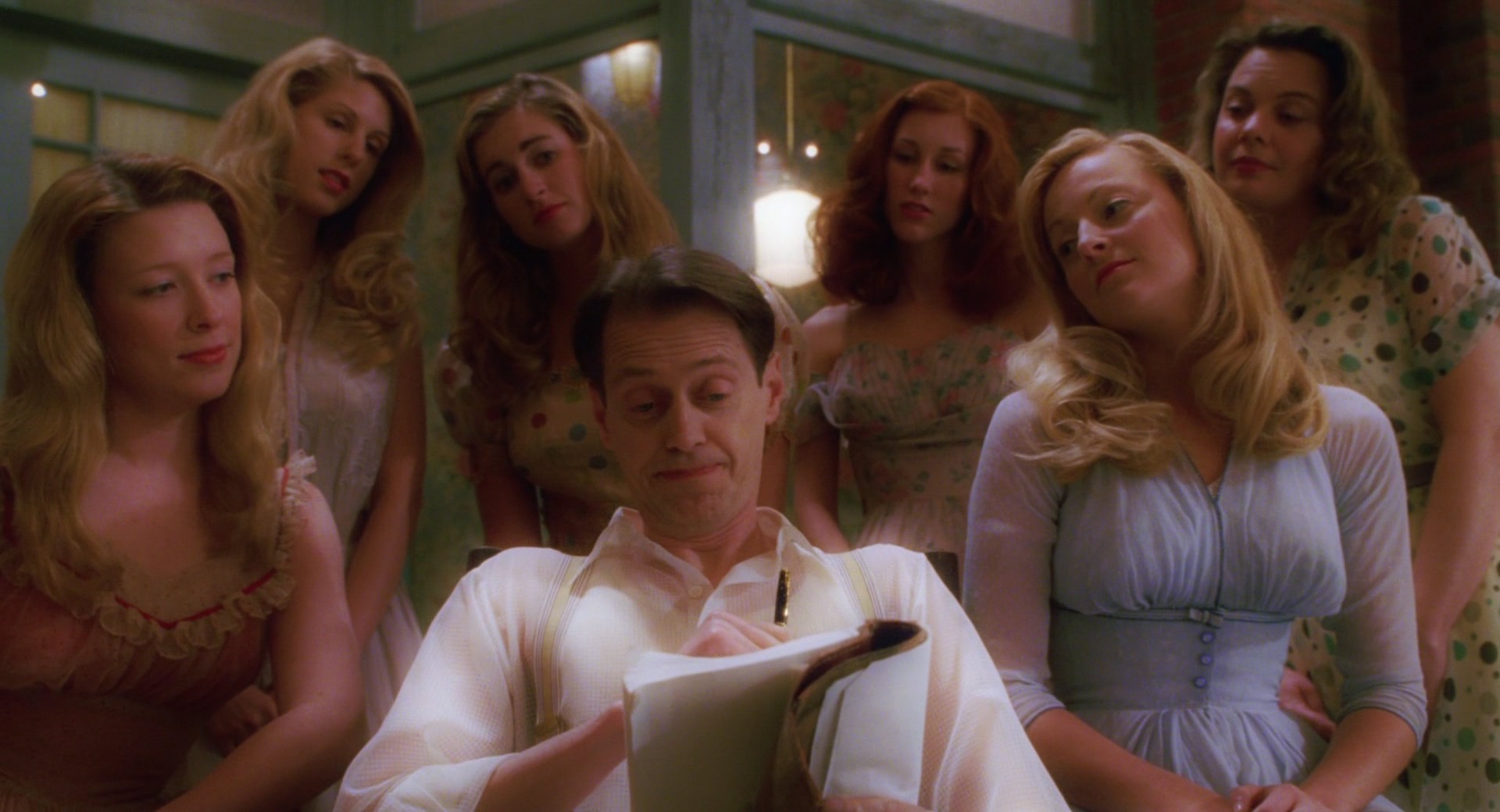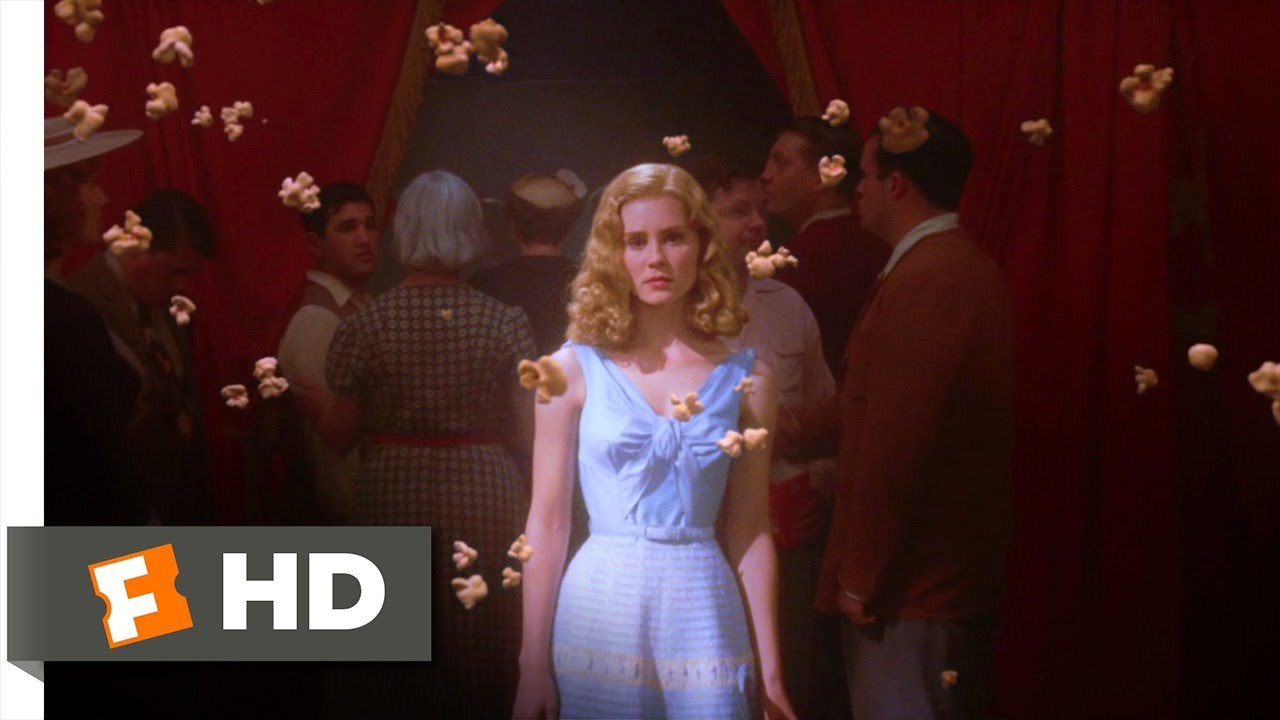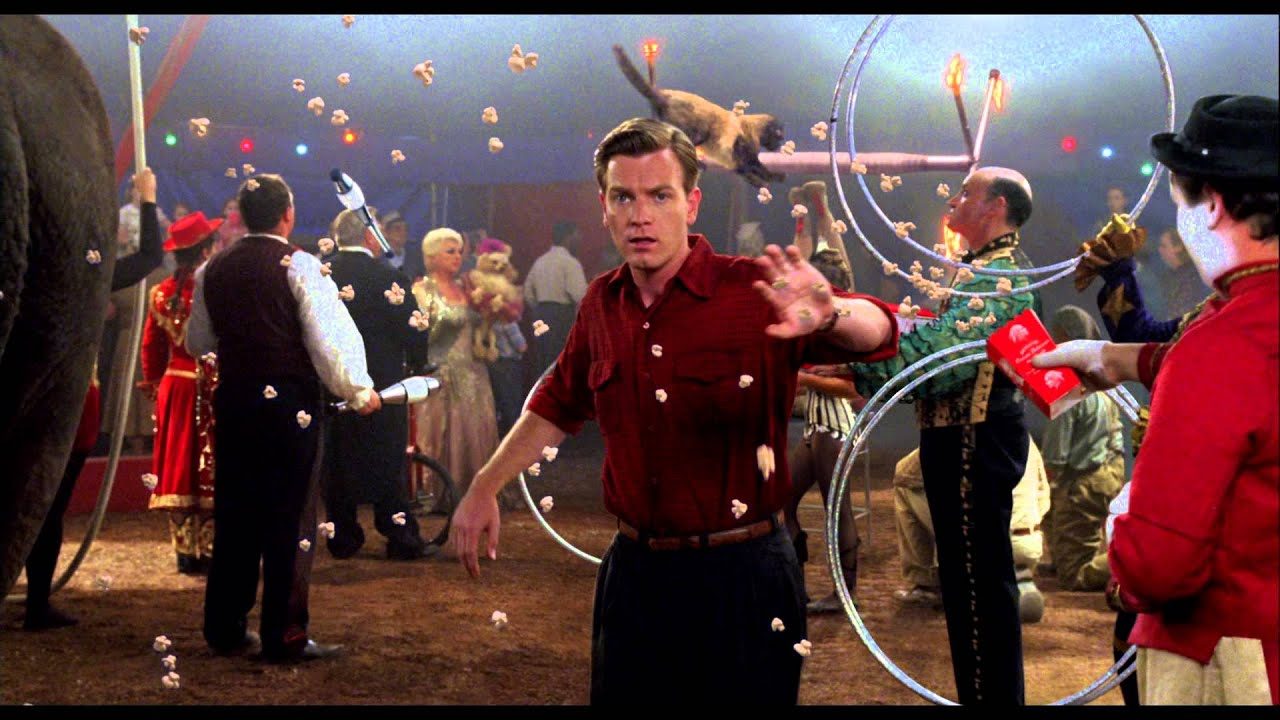Big Fish (2003)

Big Fish is a 2003 American fantasy drama film directed by Tim Burton, based on the 1998 novel by Daniel Wallace. Known for its surreal style and whimsical storytelling, the film explores the life of Edward Bloom (played by Albert Finney and Ewan McGregor), a man known for telling grandiose and fantastical tales about his life. As Edward’s son, Will Bloom (Billy Crudup), struggles to reconcile with his father’s exaggerated stories, he embarks on a journey of understanding the deeper meaning behind the larger-than-life narrative. The film features an impressive cast, including Jessica Lange, Marion Cotillard, and Danny DeVito.
The story of Big Fish revolves around the relationship between Edward Bloom and his son Will. Edward, who has always told extravagant stories of his past, is nearing the end of his life, and Will, now an adult, seeks to understand the truth behind his father’s tall tales. Through a series of flashbacks, the film recounts the highlights of Edward’s fantastical life, from encountering a giant (played by Matthew McGrory) to becoming a circus performer and marrying the woman of his dreams, Sandra (Jessica Lange). As Will attempts to untangle the truth from fiction, he gradually comes to appreciate the value of his father’s stories.
Ewan McGregor portrays the younger version of Edward Bloom, infusing the character with charm, adventure, and an infectious enthusiasm for life. McGregor’s portrayal of Edward is full of energy, making the character’s larger-than-life tales seem both magical and believable. In contrast, Albert Finney’s portrayal of the older Edward brings a sense of wisdom, weariness, and reflection, giving the character a grounded sense of reality as he nears the end of his life. The two actors complement each other beautifully, effectively capturing the two distinct phases of Edward’s life.
Billy Crudup’s portrayal of Will Bloom serves as the emotional anchor of the film. As the skeptical son, Will struggles with his father’s fantastical storytelling, and his journey of reconciliation forms the emotional core of the narrative. Crudup brings depth and sincerity to the role, capturing Will’s inner conflict as he comes to terms with his father’s legacy. Through Will’s perspective, the audience sees the importance of storytelling and the ways in which myths and legends can shape a person’s life and identity.

Tim Burton’s direction is key to the film’s unique visual style. Known for his affinity for fantasy and surrealism, Burton brings a sense of whimsy and wonder to the film’s storytelling. The fantastical elements of Edward’s life are brought to life with Burton’s signature visual flair, incorporating vibrant colors, dreamlike imagery, and quirky character designs. This visual style enhances the fantastical elements of the story, while also grounding the film in themes of love, family, and the passage of time. Burton’s ability to seamlessly blend fantasy with emotional depth elevates Big Fish beyond a simple fairy tale, making it a heartfelt exploration of human connections.

The film’s themes of storytelling, identity, and reconciliation are woven throughout the narrative. As Will learns to understand his father’s fantastical tales, he discovers that the stories are not just fabrications, but representations of his father’s hopes, dreams, and emotions. The film suggests that storytelling, no matter how exaggerated, plays a crucial role in shaping the way we understand ourselves and the world around us. The exploration of legacy, both personal and familial, resonates deeply, as it reminds the audience of the importance of the stories we tell and the impact they have on future generations.

In conclusion, Big Fish is a beautifully crafted film that blends fantasy with emotional depth. Tim Burton’s direction, combined with strong performances from Ewan McGregor, Albert Finney, and Billy Crudup, creates a heartfelt narrative about love, family, and the power of storytelling. The film’s whimsical visuals and fantastical elements are balanced by its poignant exploration of life’s fleeting nature, making it a timeless piece of cinema. Big Fish reminds us that even the most extraordinary stories can reveal profound truths about the human experience, and that sometimes, the biggest stories are the ones that truly matter.











